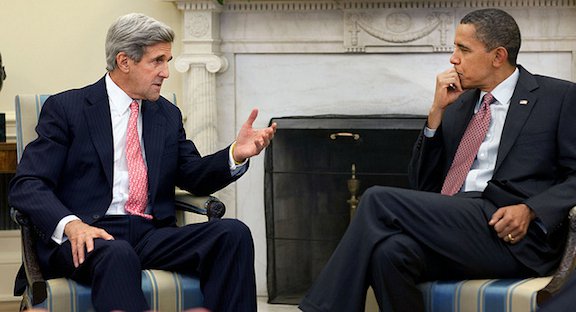Attacking Syria - Political Theater at its Worst

The call to attack Syria is a response to the Assad regime’s alleged use of chemical weapons. Often referred to as weapons of mass destruction because of their indiscriminate killing properties, chemical weapons are universally viewed as unacceptable instruments of war-- so unacceptable that even some of the most barbaric rulers on the planet are opposed to their use. If despots recoil at better killing through chemistry, surely more civilized world leaders should take action against any group that uses WMDs.
Yet with respect to Syria, the only leader who appears to be committed to military action is the president of the United States. He is proposing that the United States launches a military attack we can’t afford, to strike an enemy we don’t have so we can kill people in the name of humanitarianism. And in so doing, we will largely be aiding Al Qaeda, the same organization responsible for killing over 3,000 innocent Americans in the 9/11/01 attacks.
The lunacy of climbing into the same fox hole as your enemy is matched by the arrogance of launching an unjustified military strike against a nation because its leaders have handled civil strife in what is deemed to be an inappropriate manner. As horrendous and repugnant as a chemical attack is, it should not be used to sanction an unprovoked unilateral military strike. But it should raise the question, “Why now”?
The use of chemical weapons in the Middle East dates back to at least 1980, during the Iran-Iraq war. Iraq’s use of mustard gas, tabun and Sarin between 1980 and 1988 is fairly well documented, as is its use of chemical weapons to quell the rebellion of the Kurd and Shiite population in the 1990s. During that time period, the United States never proposed direct, unilateral action against Iraq.
It could be argued that as the world’s leading superpower, the United States has a responsibility to assist other nations when they are threatened. However, Syria is not threatening or attacking other countries; it is embroiled in a civil war. Consequently, a military strike becomes a direct aggressive action by one nation against another. Any form of attack on Syria by the United States, is in fact an act of war, and is not different than Syria launching a missile attack against the United States.
In his call for military action, Obama has yet to define, at least to the public, what he proposes to strike, the estimated casualties, the anticipated outcome of such an attack, the anticipated cost, or any other relevant information. Speculation from knowledgeable sources pegs the cost of the proposed attacks at $300+ million.
For that princely sum, the world gets the equivalent of “punishing Johnny for being bad”, in hopes that Johnny won’t be bad again. Such an approach is as useless as it is ill conceived. Eliminating the chemicals Johnny uses when he’s bad could achieve the goal of preventing future unacceptable activities of the same sort. However, while an attack on the chemical weapons storage facility would undoubtedly deplete the stockpile, it would most likely cause an uncontrolled release of chemicals in the process-- thereby triggering an unanticipated chemical attack.
So the only viable options are to knock down a few buildings, destroy an airport or two, kill some people or some combination thereof. And to what purpose? How many people must be killed and how may buildings and runways have to be destroyed to have an effect on a country that has been immersed in a bloody civil war that has killed over 100,000 people during the past two years?
Had Obama not spoken of his imaginary red line in the sand, talk of a military strike would be muted, if it existed at all. It appears that all the melodrama is nothing more than political theater, designed for purposes other than eliminating the possibility of further use of chemical weapons. Unfortunately, the theater company is composed of the worst actors ever to take the political stage. Their performances aren’t merely unconvincing and embarrassing. They are utterly ineffective.




